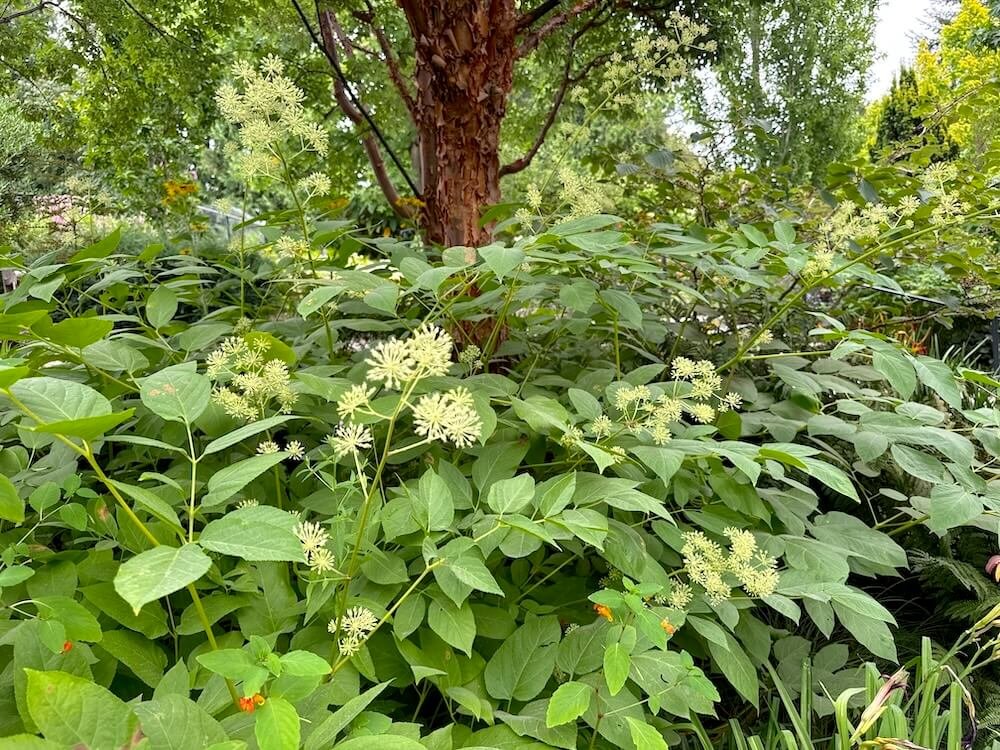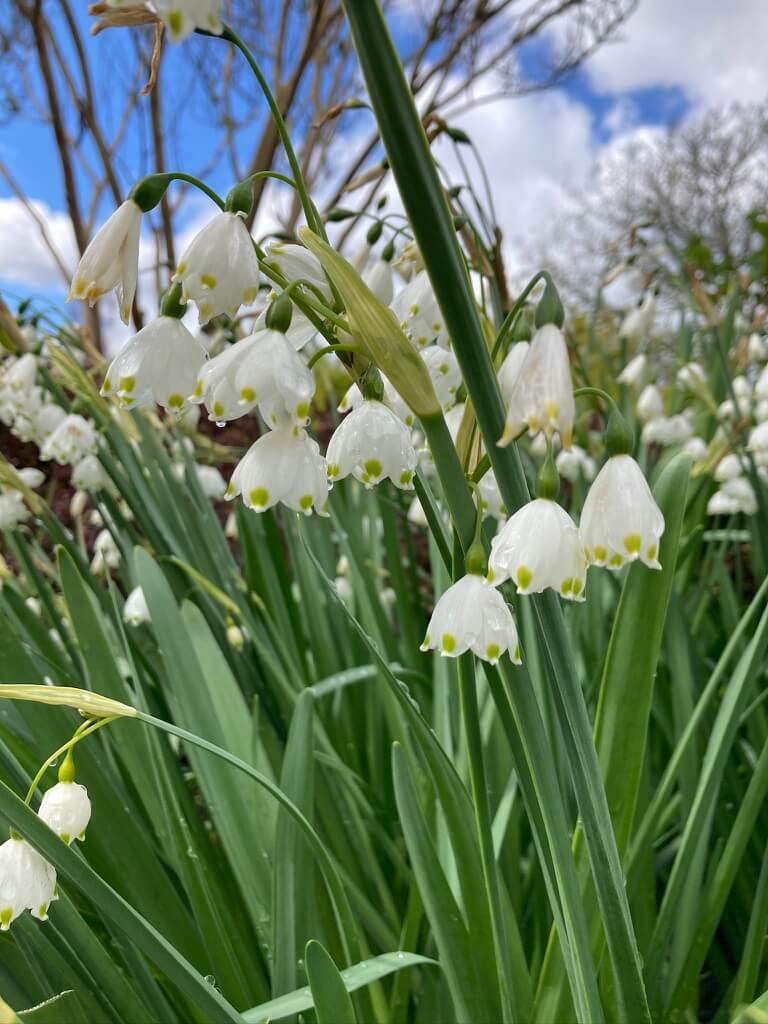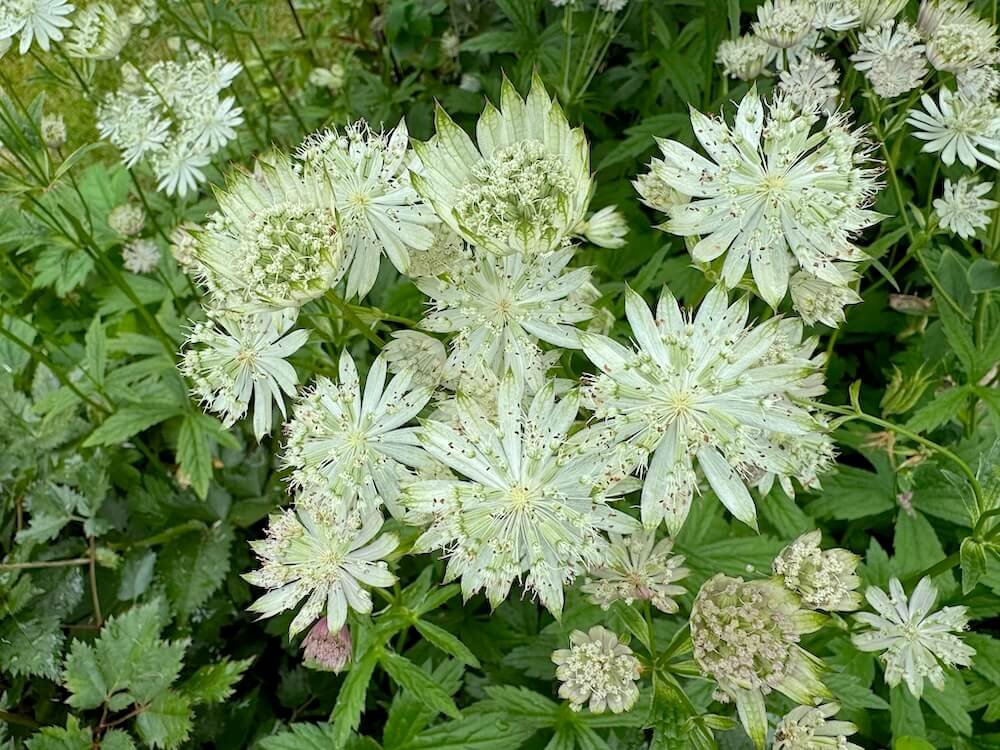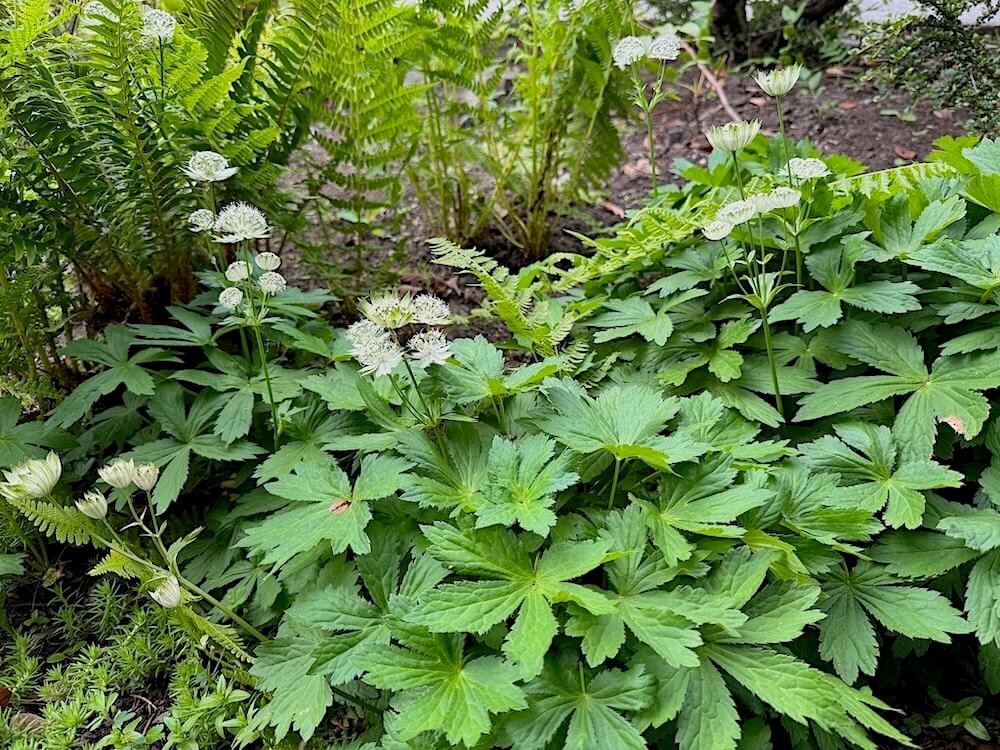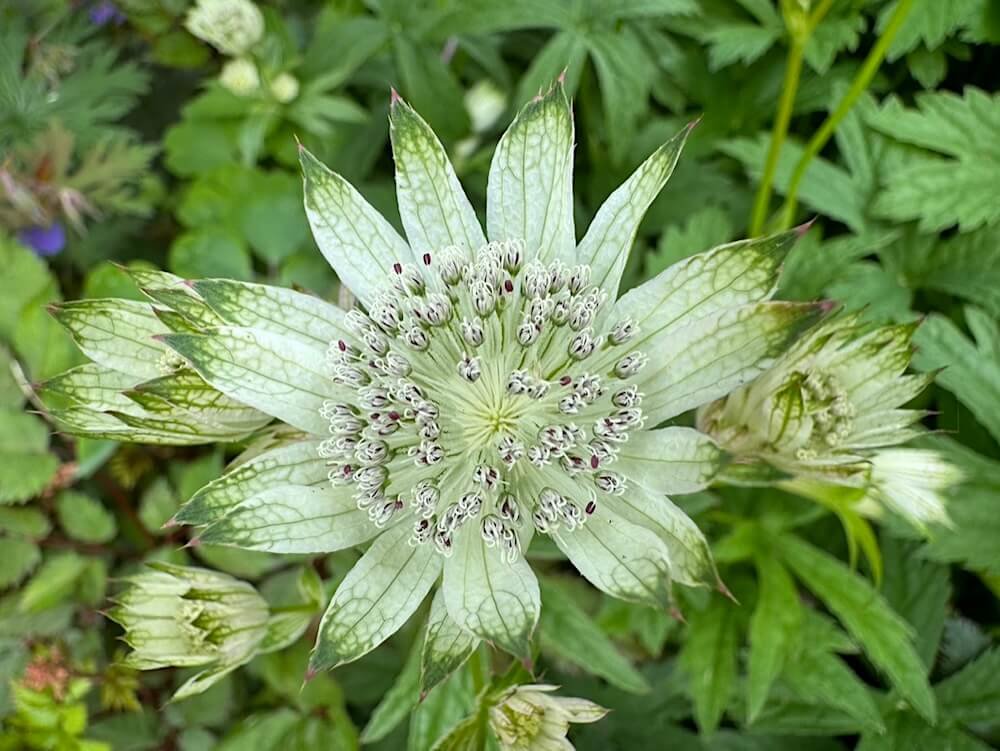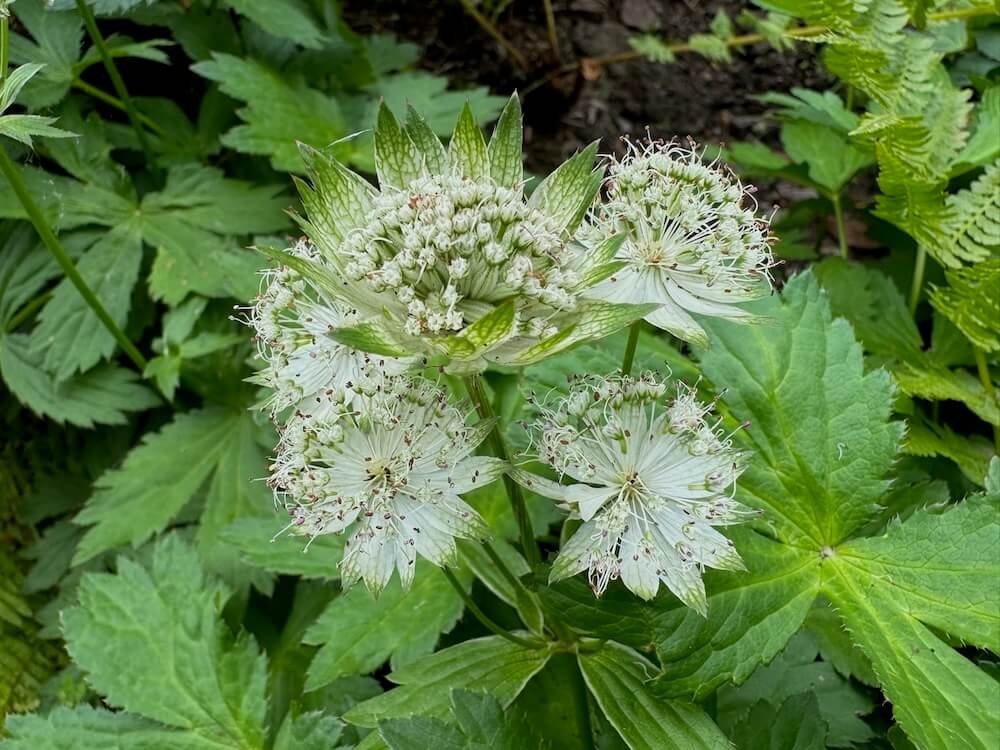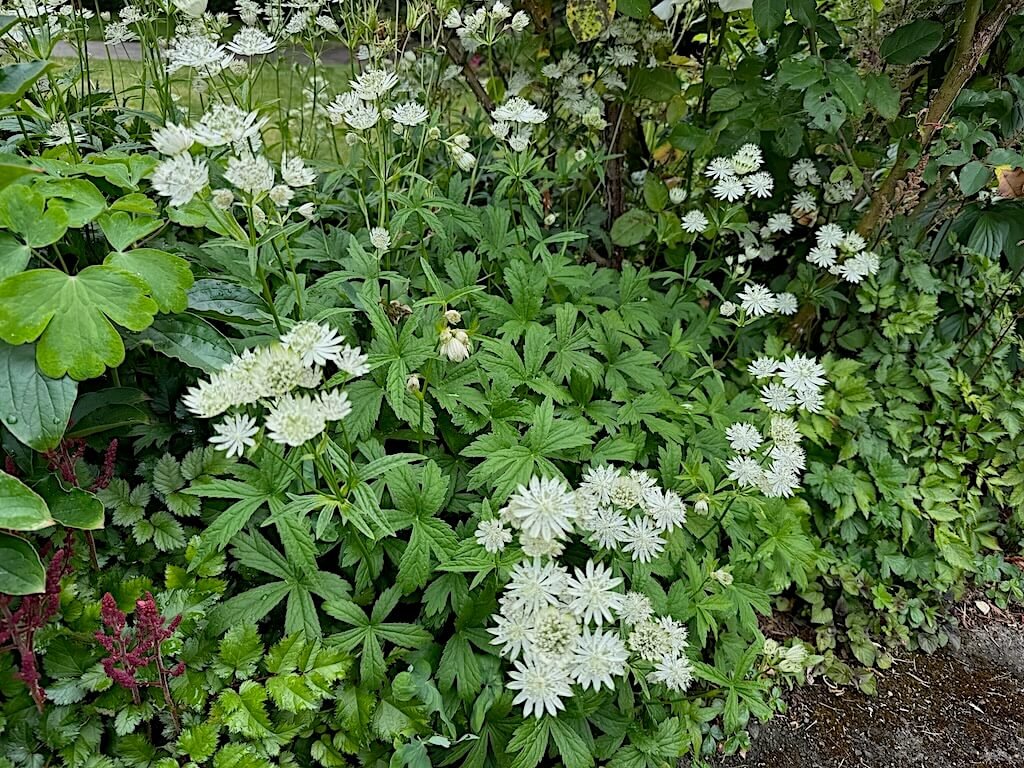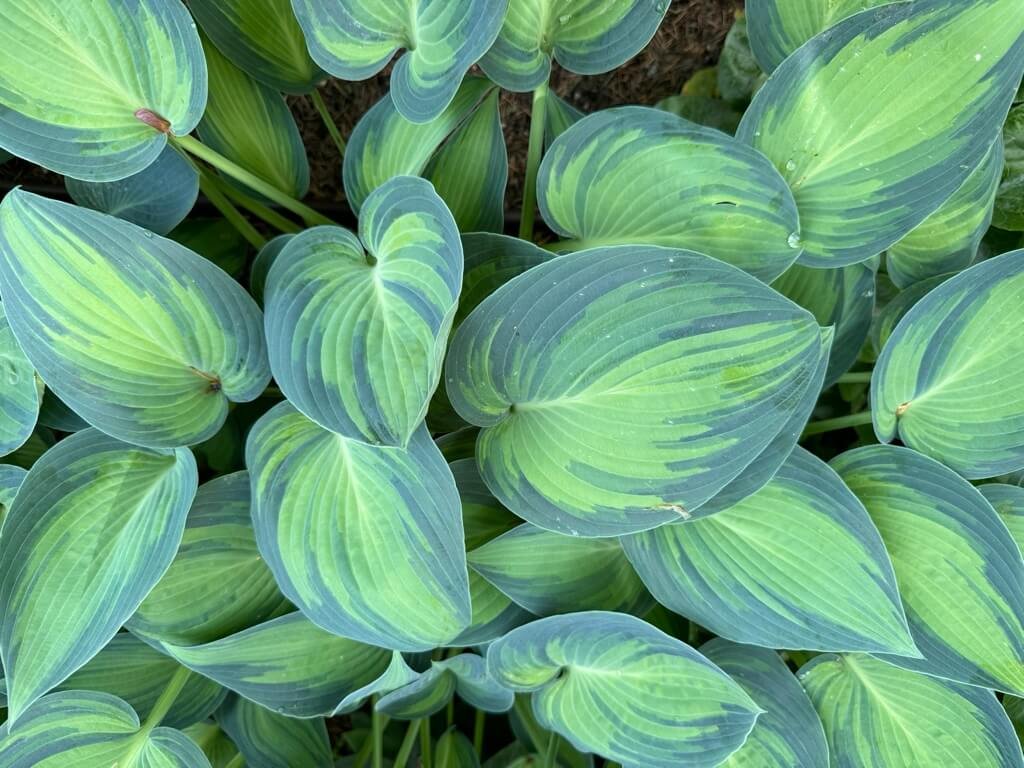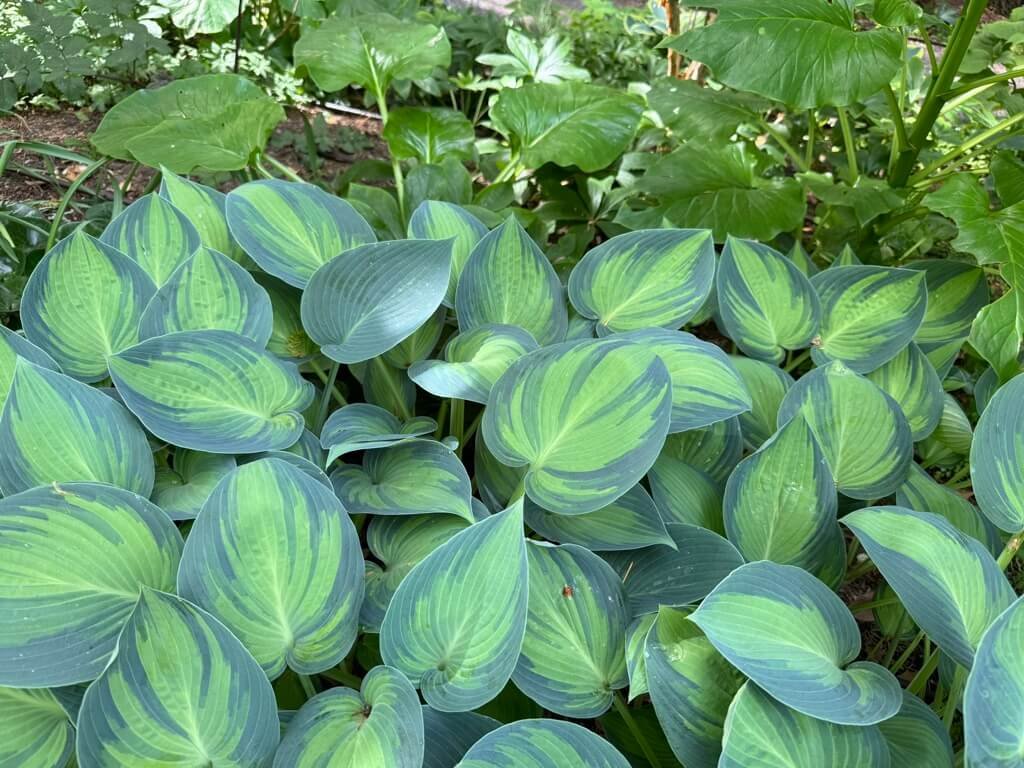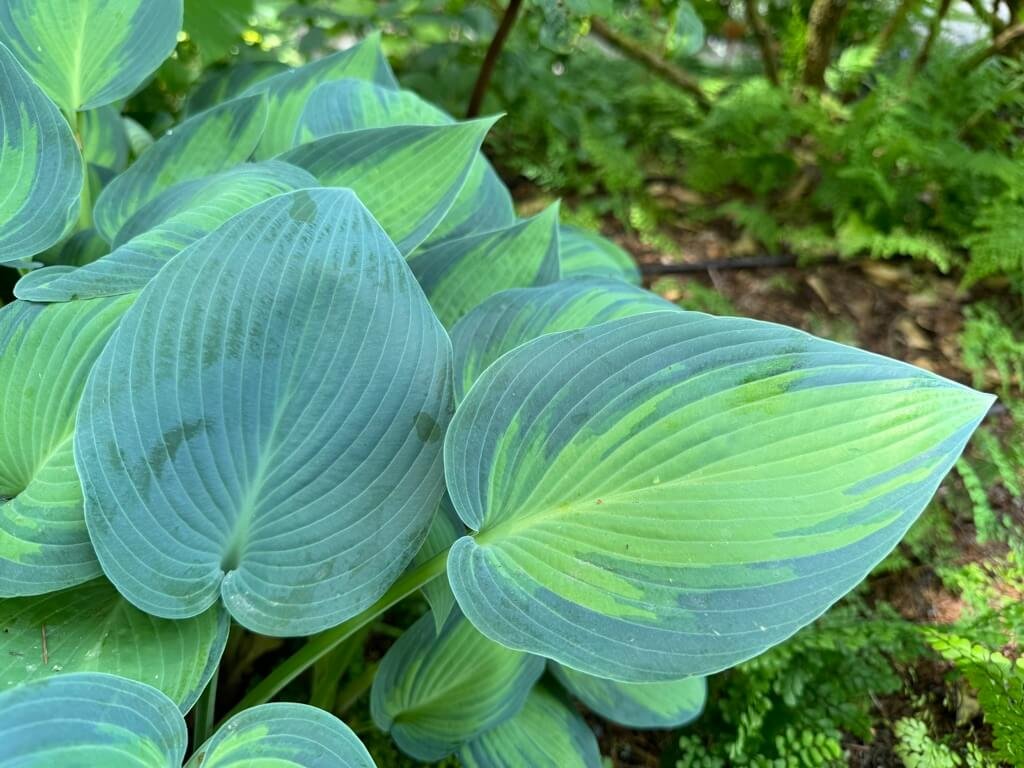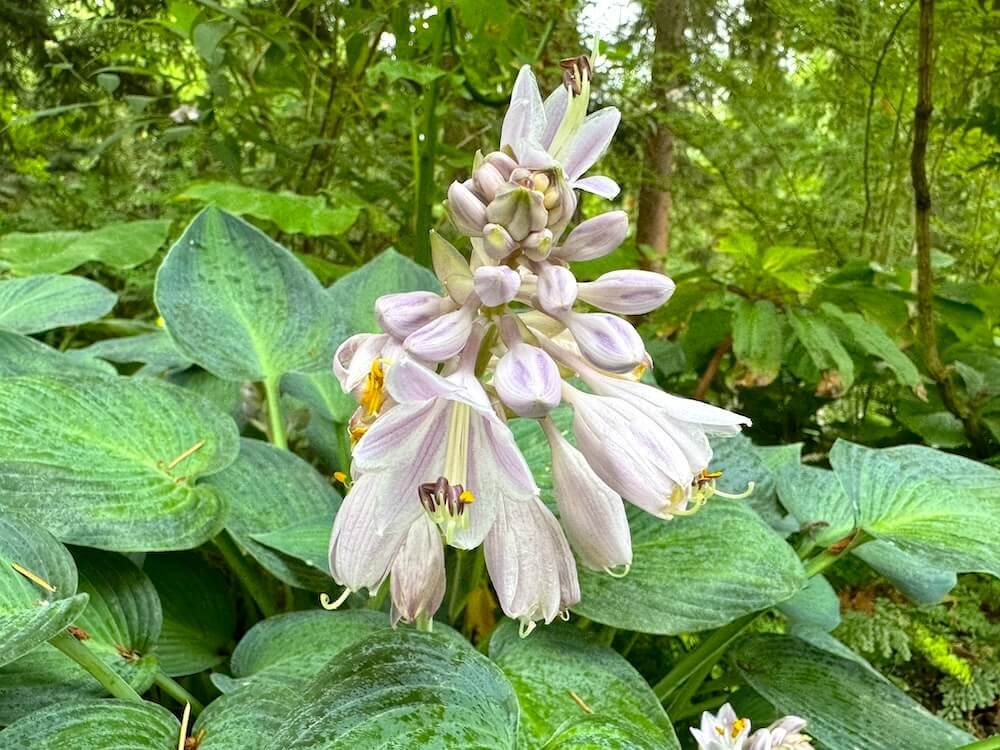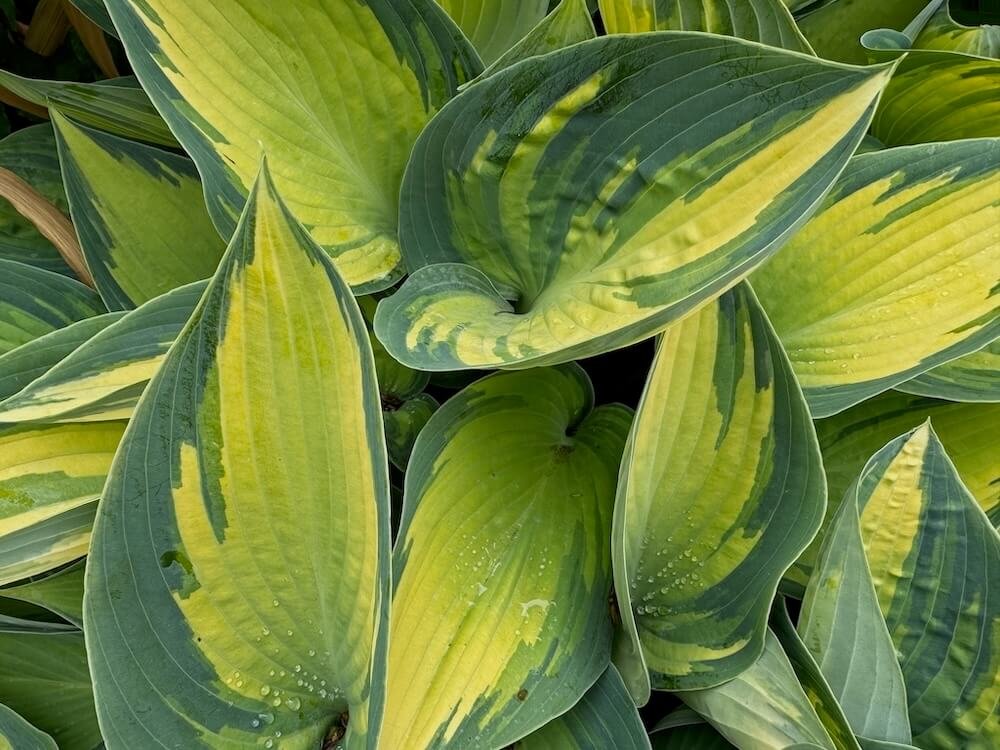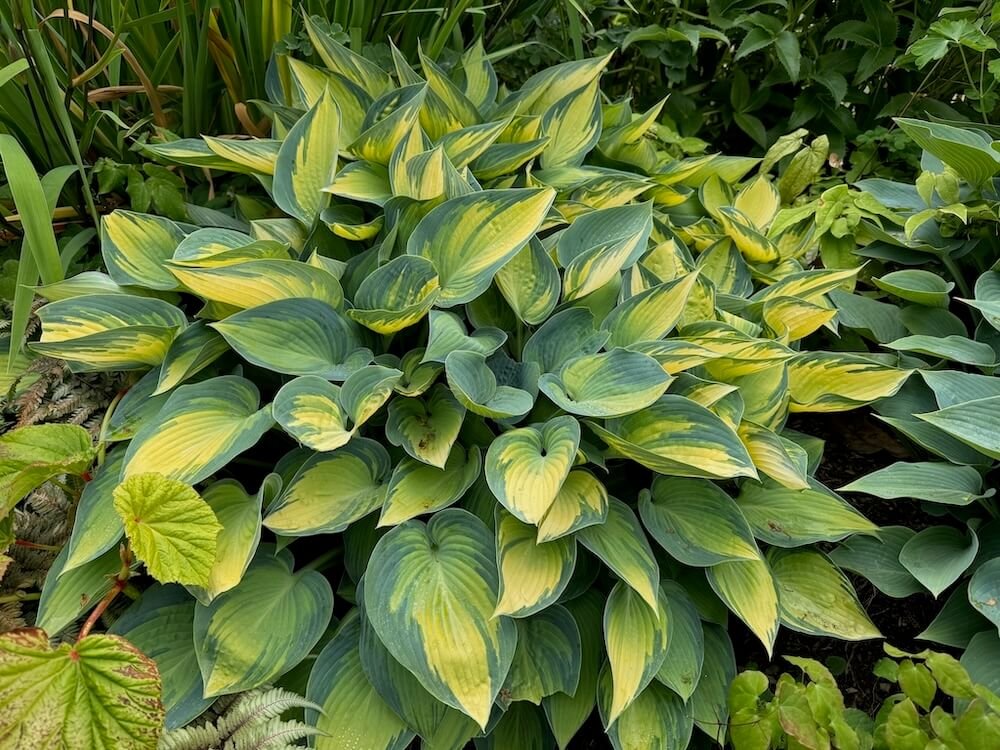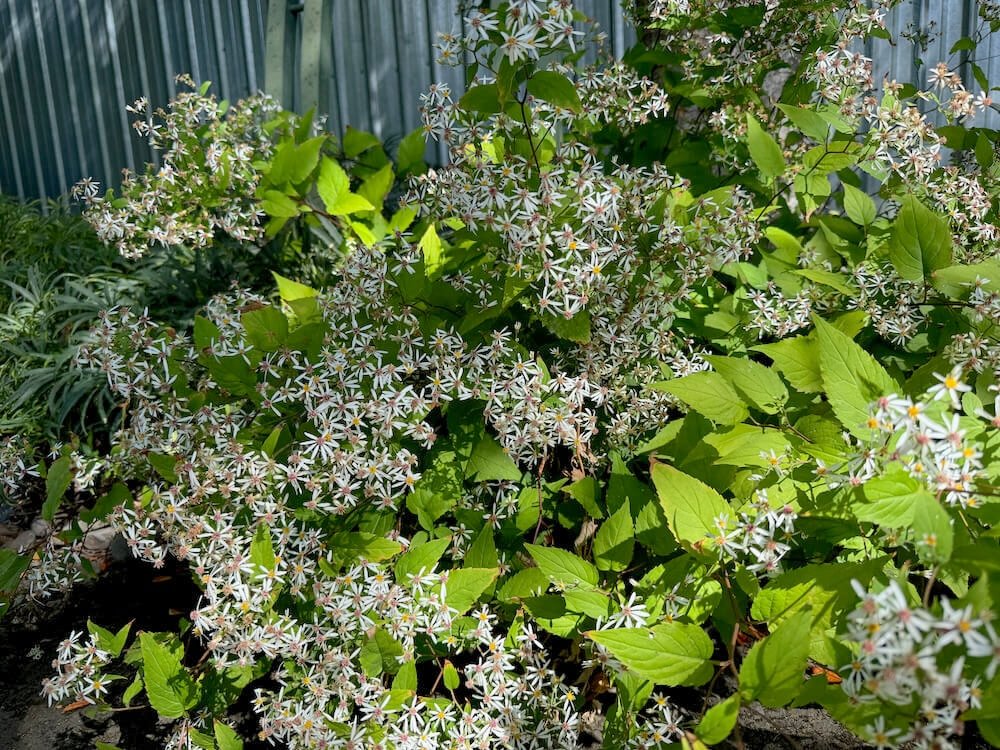DESCRIPTION
Aralia californica, commonly known as Elk Clover, is an attractive deciduous perennial that produces clusters of small, creamy white flowers in late spring to early summer. The flowers form on large, branching stems, creating an airy, delicate display that is followed by dark purple, berry-like fruits in late summer. These berries attract birds and add ornamental interest as the season progresses.
Native to the woodlands of California and Oregon, Aralia californica thrives in moist, shaded environments. Its lush, tropical-looking foliage and architectural form make it a standout in woodland gardens and naturalistic landscapes, where it adds a sense of wild beauty and structure throughout the growing season.
DESCRIPTION
Aralia californica, commonly known as Elk Clover, is an attractive deciduous perennial that produces clusters of small, creamy white flowers in late spring to early summer. The flowers form on large, branching stems, creating an airy, delicate display that is followed by dark purple, berry-like fruits in late summer. These berries attract birds and add ornamental interest as the season progresses.
Native to the woodlands of California and Oregon, Aralia californica thrives in moist, shaded environments. Its lush, tropical-looking foliage and architectural form make it a standout in woodland gardens and naturalistic landscapes, where it adds a sense of wild beauty and structure throughout the growing season.


